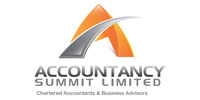Almost a quarter of UK business leaders are worried that their company may not survive this financial year due to the cost of living crisis.
A survey conducted by Nucleus Commercial Finance has found that 23% of UK business leaders fear their company will not survive the financial year due to the current cost of living crisis. The majority of business owners polled (72%) say that the current cost of living crisis is a cause for concern for the survival or growth of their business. The high cost of fuel is at the top of the list of concerns, followed by the rising cost of energy. Cash flow, employee retention and higher transportation costs are the other biggest business worries at this time.
The majority of business leaders are also concerned that the current crisis will not just affect their business directly, with higher supply costs, but indirectly too. In fact, 68% of those in senior management roles expect to lose customers, as they believe that people will not be able to afford their products or services anymore.
Also this week, the latest Quarterly Economic Survey from the British Chambers of Commerce (BCC) has found that pressures on business are reaching new heights. Measures for inflation are at the highest levels on record, with 65% of firms expecting to raise prices and no sign that this is levelling off. More than four in five firms (82%) cite inflation as a growing concern for their business, also an historical high.
The BCC surveyed 5,700 businesses for its Quarterly Economic Survey for Q2 2022. The findings show that:
- 54% of firms expect an increase in turnover over the next 12 months - down from 63% in Q1 2022 and the lowest figure since Q4 2020;
- 43% of firms are predicting an increase in profitability, down from 50% in Q1 2022;
- 65% of firms now expect their prices to rise in the next three months, up from 62% in Q1, a record high and a 23-percentage-point rise on a year ago.
- When firms were asked which factors were driving price rises, 67% cited utility bills, 66% labour costs, 56% fuel and 53% raw materials.
Responding to the findings, David Bharier, BCC head of research, said: "This quarter's survey results clearly point to a weakening economic outlook amid unprecedented cost pressures and falling business confidence … Inflation remains by far and away the top concern, with our survey measures going beyond anything we've seen before in the history of the data."
BCC director general Shevaun Haviland said: "The red lights on our economic dashboard are starting to flash. Nearly every single indicator has seen a deterioration since our last survey in March. Business confidence has taken a significant hit and fears over inflation and cost pressures are at new record highs.
"But it is not too late for the government to take action to help businesses through these challenging times and put the economy on a more stable footing. A cut in VAT on energy bills to 5%, and other steps to relieve the tax burden on firms to encourage investment are crucial."
Written by Rachel Miller.
